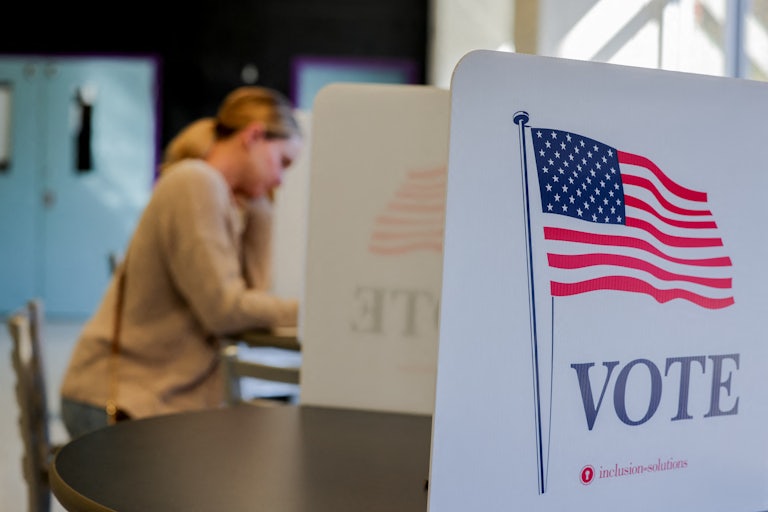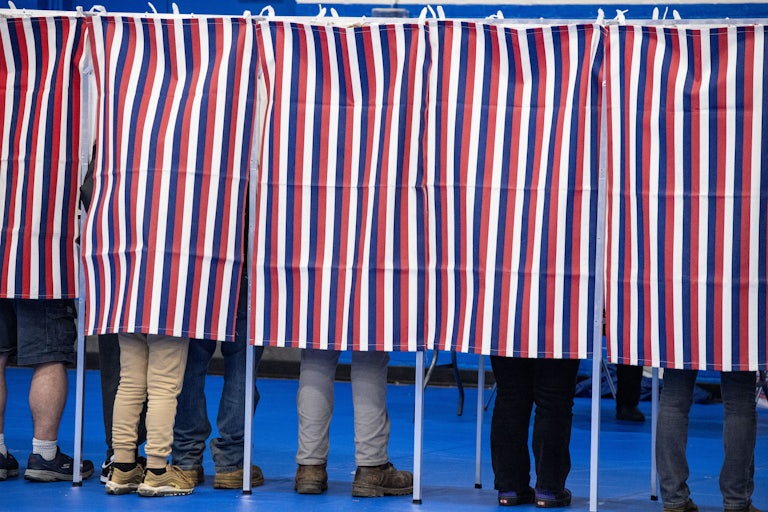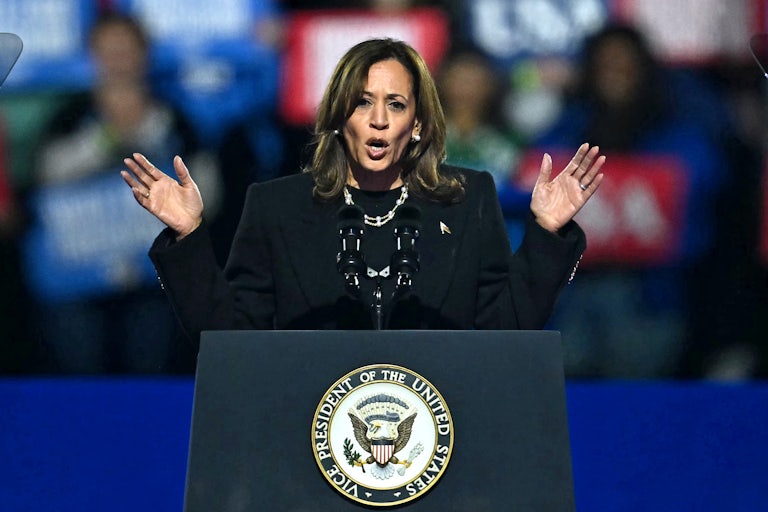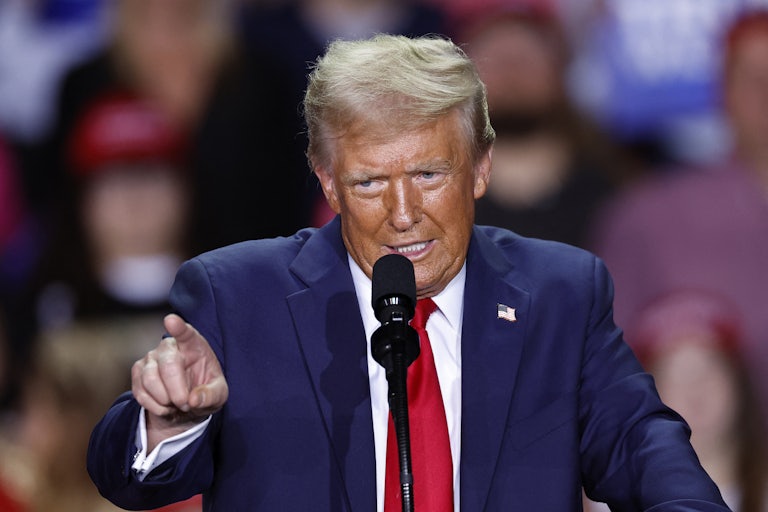Are We Just Ignoring How Russia Openly Helped Trump on Election Night?
Multiple polling locations in Democratic areas of battleground states received hoax bomb threats.

Polling locations in Democratic strongholds across several key battleground states received a slew of phony bomb threats on Election Day, and while the FBI deemed that none of the threats were credible, they still represent a disturbing feature of U.S. elections: alleged interference from Russia.
The FBI released a statement Tuesday saying that it was “aware of bomb threats to polling locations in several states, many of which appear to originate from Russian email domains.” While the FBI underscored that none of the threats had been found to be credible, their purpose was undoubtedly to sow chaos and fear as Americans attempted to cast their ballots.
Many of those threats were directed at sites in Fulton County, Georgia, the state’s most populous Democratic stronghold. Law enforcement officials received at least five threats toward two Union City voting sites, and two polling places were evacuated for 30 minutes each after receiving threats.
Georgia’s Secretary of State Brad Raffensperger said in a statement that the non-credible threats affected “five to seven different precincts” in the key swing state.
He also said that the bomb threats had been linked to one particular “foreign state actor.”
“We identified the source, and it was from Russia,” Raffensperger said. “They’re up to mischief, it seems, and they don’t want us to have a smooth, fair, and accurate election.
“Anything that can get us to fight amongst ourselves—they can count that as a victory.”
In Wisconsin, two polling places in the state capitol of Madison received threats according to Ann Jacobs, who leads the Wisconsin Elections Commission. Those threats also seemingly originated from Russian email domains, according to the FBI’s office in Milwaukee.
In Arizona, election officials received fake bomb threats at four polling stations. Arizona Secretary of State Adrian Fontes said that the threats came from an email address ending in .ru, but emphasized that he could not confirm if the threats were actually from the Russian government.
There were also dozens of bomb threats that have not been linked to the alleged Russian email campaign.
Pennsylvania, a critical battleground state, also received a slate of hoax bomb threats. At least 10 polling locations received threats in Philadelphia alone. One location was shut down for 23 minutes but later received a court order extending its hours to make up the lost time.
The threats in Pennsylvania were not just limited to locations in Philadelphia County. Officials in Bucks, Centre, Chester, Clearfield, Delaware, Luzerne, Perry, and York Counties also reported receiving bomb threats. Investigators in Pennsylvania have yet to specifically link any of these phony threats to Russia.
In Michigan, there were reports of bomb threats at several polling locations, but none were credible, according to a spokesperson for Michigan’s Secretary of State Jocelyn Benson.
Russia’s diplomatic mission in the United States dismissed any allegations of Russian interference as “malicious slander.”
“We would like to emphasize that Russia has not interfered and does not interfere in the internal affairs of other countries, including the United States,” the Russian Embassy said in a statement. “As President Vladimir Putin has repeatedly stressed, we respect the will of the American people.”








